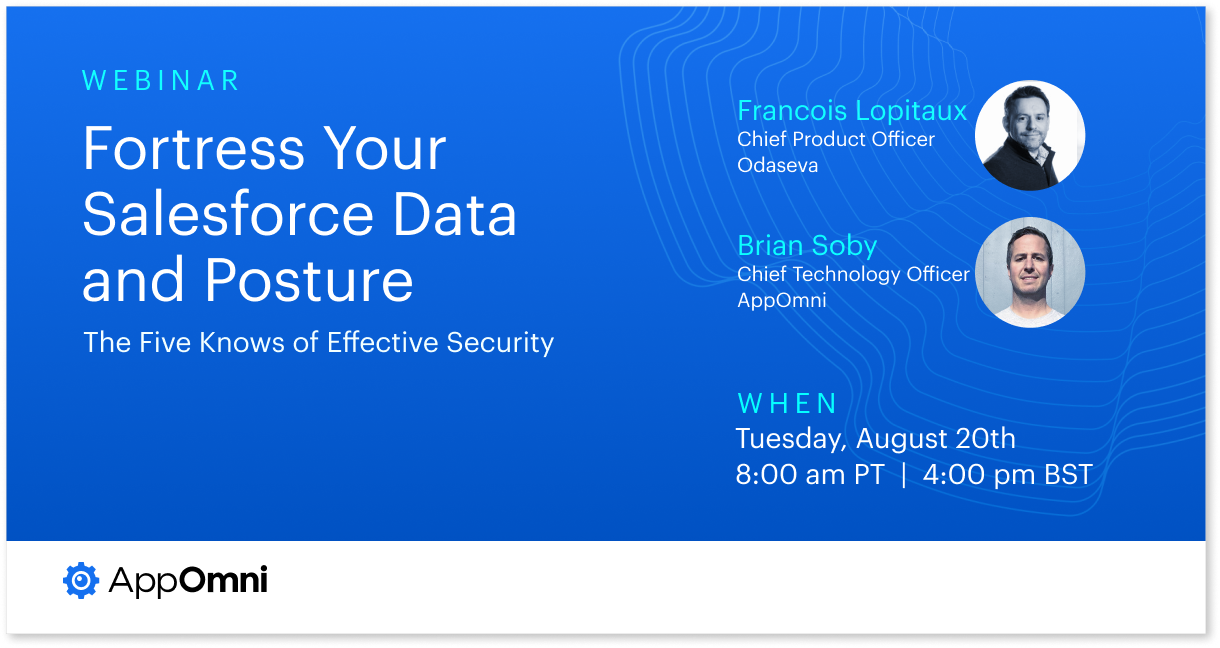
Resource Hub
A collection of our latest articles, videos, news, and more.
-
Fortress Your Salesforce Data and Posture: The 5 Knows of Effective Security
Learn how AppOmni and Odaseva work together to provide a defense-in-depth solution for your Salesforce ecosystem.
-
AppOmni Brings Aboard Industry Veteran Joel Wallenstrom
Joel Wallenstrom, AppOmni’s new General Manager, aims to make AppOmni the top choice for business-critical SaaS security.
-
Achieving Zero-Trust Cybersecurity with AppOmni’s Brian Soby
Learn why achieving and maintaining zero-trust cybersecurity needs to go well beyond simple identity management. Watch Techstrong.tv
-
Guarding the SaaS Landscape: Integrating Threat Detection and Posture Management
What you’ll learn ✓ Why SaaS logs normalization is important for better threat detection and response✓ Processes for threat detection✓ Combining posture management with threat…
-
Breadth vs. Depth in SaaS Security
Learn the difference between breadth vs depth in SaaS security and why AppOmni’s depth-first approach can help organizations achieve both breadth and…
-
Threat Briefing & Analysis for Financial Services
SaaS represents one of the largest attack surfaces that businesses have to defend – Are you ready? Get an exclusive threat briefing.…
-
Threat Briefing & Analysis for Healthcare
SaaS represents one of the largest attack surfaces that businesses have to defend – Are you ready? Get an exclusive threat briefing.…
-
Bolstering SaaS Security with Zero Trust Posture Management
Zero Trust Posture Management (ZTPM) extends the zero trust architecture beyond the network to SaaS applications and data. Join AppOmni CTO, Brian…
-
Better SaaS Security with AppOmni and Okta Identity Engine
Discover how AppOmni enhances the Okta Identity Engine (OIE) to provide your organization with robust SaaS security, featuring dynamic authorization and precise…
-
How To Protect Legal SaaS Data: What Law Firms Need to Know
Read about why the legal sector experiences frequent SaaS breaches and how law firms can benefit from securing their SaaS environment with…








